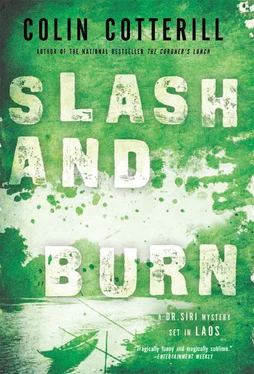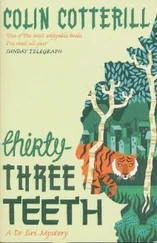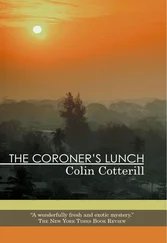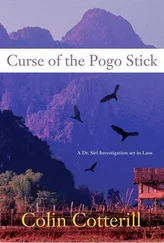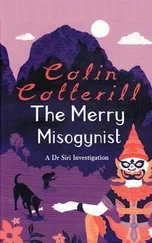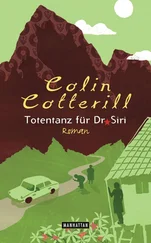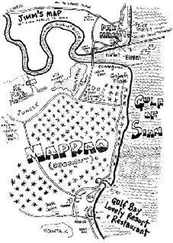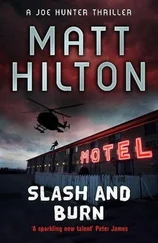Colin Cotterill - Slash and Burn
Здесь есть возможность читать онлайн «Colin Cotterill - Slash and Burn» весь текст электронной книги совершенно бесплатно (целиком полную версию без сокращений). В некоторых случаях можно слушать аудио, скачать через торрент в формате fb2 и присутствует краткое содержание. Жанр: Полицейский детектив, на английском языке. Описание произведения, (предисловие) а так же отзывы посетителей доступны на портале библиотеки ЛибКат.
- Название:Slash and Burn
- Автор:
- Жанр:
- Год:неизвестен
- ISBN:нет данных
- Рейтинг книги:5 / 5. Голосов: 1
-
Избранное:Добавить в избранное
- Отзывы:
-
Ваша оценка:
- 100
- 1
- 2
- 3
- 4
- 5
Slash and Burn: краткое содержание, описание и аннотация
Предлагаем к чтению аннотацию, описание, краткое содержание или предисловие (зависит от того, что написал сам автор книги «Slash and Burn»). Если вы не нашли необходимую информацию о книге — напишите в комментариях, мы постараемся отыскать её.
Slash and Burn — читать онлайн бесплатно полную книгу (весь текст) целиком
Ниже представлен текст книги, разбитый по страницам. Система сохранения места последней прочитанной страницы, позволяет с удобством читать онлайн бесплатно книгу «Slash and Burn», без необходимости каждый раз заново искать на чём Вы остановились. Поставьте закладку, и сможете в любой момент перейти на страницу, на которой закончили чтение.
Интервал:
Закладка:
After twenty minutes, Phosy joined the others. All interest had turned to the new arrivals. Phosy showed them a spot on the map, Ban Hoong to the east, where the group had apparently begun their journey. It was a mere forty-minute helicopter trip from where they now stood.
“They’re closer to Phonsavan than to here,” Dtui remarked.
“Their sorceress told them to come,” Phosy translated. “Said she’d seen a sign in a dream.”
“I take it there isn’t the slightest possibility she caught the government announcement on the radio?” Civilai asked.
“I doubt it,” said Phosy. “She’s been dead for seven years. It was her final request that they deliver the dragon’s tail to the wealthy overlords at Spook City.”
Peach was translating for the Americans.
“I guess that would be us,” said the major. “Did they tell you anything about how the dragon’s tail came into their possession?”
Phosy continued the story.
“There was an explosion one night and they woke up the next day to find this thing had fallen through the roof of their meeting hut. The sorceress told them that she’d been sitting in a tree-I get the feeling she wasn’t really in control of her senses-and she saw a dragon collide with the moon. The moon broke into a million pieces. They couldn’t convince her otherwise because she’d gone blind that night. Given the evidence, the head man in the group’s more inclined to believe it was a helicopter.”
“Was this the only part of the chopper they found?” Lit asked.
“Apparently.”
“How come only their sorceress saw the explosion?”
“There was always a lot of air activity in the region: bombings, anti-aircraft fire, crashes, the dumping of undelivered ordnance. They’d been visited and threatened by both sides during the war. All their young men had been forcibly recruited to fight. They were afraid. They weren’t about to go rushing out in the middle of the night to investigate an explosion. Just pulled the blanket up and hoped it would all go away.”
When word of this made it around the Americans, Sergeant John Johnson stepped forward.
“Did anybody hear anything before the explosion?” he asked.
“One woman seemed quite animated about the topic. She was awake that night,” Phosy said. “She was afraid of the helicopters and this one had circled overhead a number of times. She was sure he was looking for their village. Then, she says, the aircraft just went quiet, as if it was hiding in the silence of the sky. Then there was the bang.”
Johnson asked how long the gap was between the engine cutting out and the explosion.
“She says about ten breaths,” Phosy told him. “Does that mean something?”
“It could do.”
“Did the villagers find a body?” Siri asked.
“No,” Phosy told him. “But the vegetation around there is pretty dense.”
“Has the tail been in their village all this time?” Major Potter asked.
“Pride of place in the meeting hall where it landed, apparently,” said Phosy.
“Then do they recall anyone coming into their village and taking a photograph?”
Phosy asked the group and showed them the photographs from the embassy. They confirmed that it was taken in their meeting hall but didn’t recall anyone with a camera. None of the villagers had one, they said. Neither did they recognize the huts nor the American.
“Then I see just the one option,” said Potter. “We head off to their village and set up shop there, that’s if General Suvan and Judge Haeng agree, of course.”
Haeng told the interpreter that he was just about to suggest the same thing. The general nodded and asked about lunch. That just about summed the pair up. And so, with tens of disappointed but ultimately dishonest people sent packing from Long Cheng, the two Russian Mi8 helicopters with their young Lao pilots headed east in an arc to avoid the no-fly zone. Aboard were twenty mystified Phuan villagers scared out of their wits their first time in the sky. Four of them had started to be violently sick in the plastic bags provided even before they took off. The rest joined them in midair. The second chopper carried the tail section of a Sikorsky H34 suspended from a hammock.
As the old men and boys of Ban Hoong had never seen their village from the air, and the pilots had barely five hundred hours of flying time between them, it was left to Sergeant Johnson to guide them there from the maps and from landmarks on the ground. He leaned out of the open hatchway like a stuntman and signaled to Peach who was connected by headphones to the pilots. To everyone on board the carpet of green seen through the smudge of cloud and mist seemed featureless, but the sergeant had a knack and led them directly into the bosom of Ban Hoong. The village was so ramshackle, the kick of the rotors almost leveled it. They touched down in a clearing between the huts. As they climbed down from the choppers, Siri wondered whether the place was deserted. Nobody was about. The villagers in the helicopters realized where they were and gratefully leapt from the craft even before the rotors had slowed. One by one, women and children emerged from the stilt huts like field mice after a monsoon. Despite the fact that their elders and children had been away for two weeks, the homecoming was subdued.
Siri had seen many such villages in his days in the jungle. It was a collection of single-room grass-mat structures on stilts, each with a bamboo ladder. In the gap beneath the huts were humble family looms and well-used farming equipment and varied livestock. The site was a dip into the distant past. Only the corrugated iron roofs stopped this being a two-hundred-year-old community tableau. But the setting was idyllic. It wasn’t yet 10:00 A.M. and not all the mist had burned away from the surrounding mountains. The sun was still a fuzzy egg yolk behind a lace curtain. The air was fresh and tingled the back of Siri’s throat. The sound of running stream water provided the soundtrack. The second hands on the watches on the wrists of the Americans began to crawl more slowly around the faces. Time had altered.
It was too much for some. The US embassy personnel, Rhyme from Time , Judge Haeng and Cousin Vinai took one of the choppers to Phonsavan where they would queue at the post office to make their long-distance phone calls to Vientiane. It was time to pass on news of the amazing development of the day. Meanwhile, the others set up their folding tables under the still-damaged grass roof of the meeting hall. Siri, who liked to understand his environment, strolled around the village with Ugly at his heels. The doctor smiled at people he couldn’t talk to and inspected the sad garden fences and unloved plants that marked the boundaries of each family property. He looked hopefully for something to admire but was left with a feeling that this village had died along with its sons.
Perhaps the only anomaly in an otherwise normal village was the boy who dominated the tiny village square. He was fifteen or sixteen and he sat cross-legged on the dirt. Two or three bugs buzzed around his head. In front of him were a dozen bottles of various origins: Coke, soda, a petroleum jelly jar, all glass. And in each bottle there was an insect, different species, varying sizes from a beetle to a horsefly. And if a visitor looked carefully, he’d see a fine thread feeding down through the bottle’s stopper and tied around the abdomen of each creature. The result was that when released from their prison they could fly only to the end of the thread. And if a visitor was to take the time to notice, he’d see that the bugs buzzing orbits around the boy’s head were attached by thread to his baseball cap. The lassoing of the insects would have taken a great deal of patience. The doctor tried to speak to him but the boy laughed deep in his belly and ignored the old man. Ugly was fascinated by the display. It wasn’t long before other members of the team had gathered around the insect cowboy. Two of the Americans took pictures. Everyone agreed it was extremely cruel, but terribly cool. Ar, the head of the village, stepped up to claim the boy. Both father and son had cheekbones you could stack plates on.
Читать дальшеИнтервал:
Закладка:
Похожие книги на «Slash and Burn»
Представляем Вашему вниманию похожие книги на «Slash and Burn» списком для выбора. Мы отобрали схожую по названию и смыслу литературу в надежде предоставить читателям больше вариантов отыскать новые, интересные, ещё непрочитанные произведения.
Обсуждение, отзывы о книге «Slash and Burn» и просто собственные мнения читателей. Оставьте ваши комментарии, напишите, что Вы думаете о произведении, его смысле или главных героях. Укажите что конкретно понравилось, а что нет, и почему Вы так считаете.
